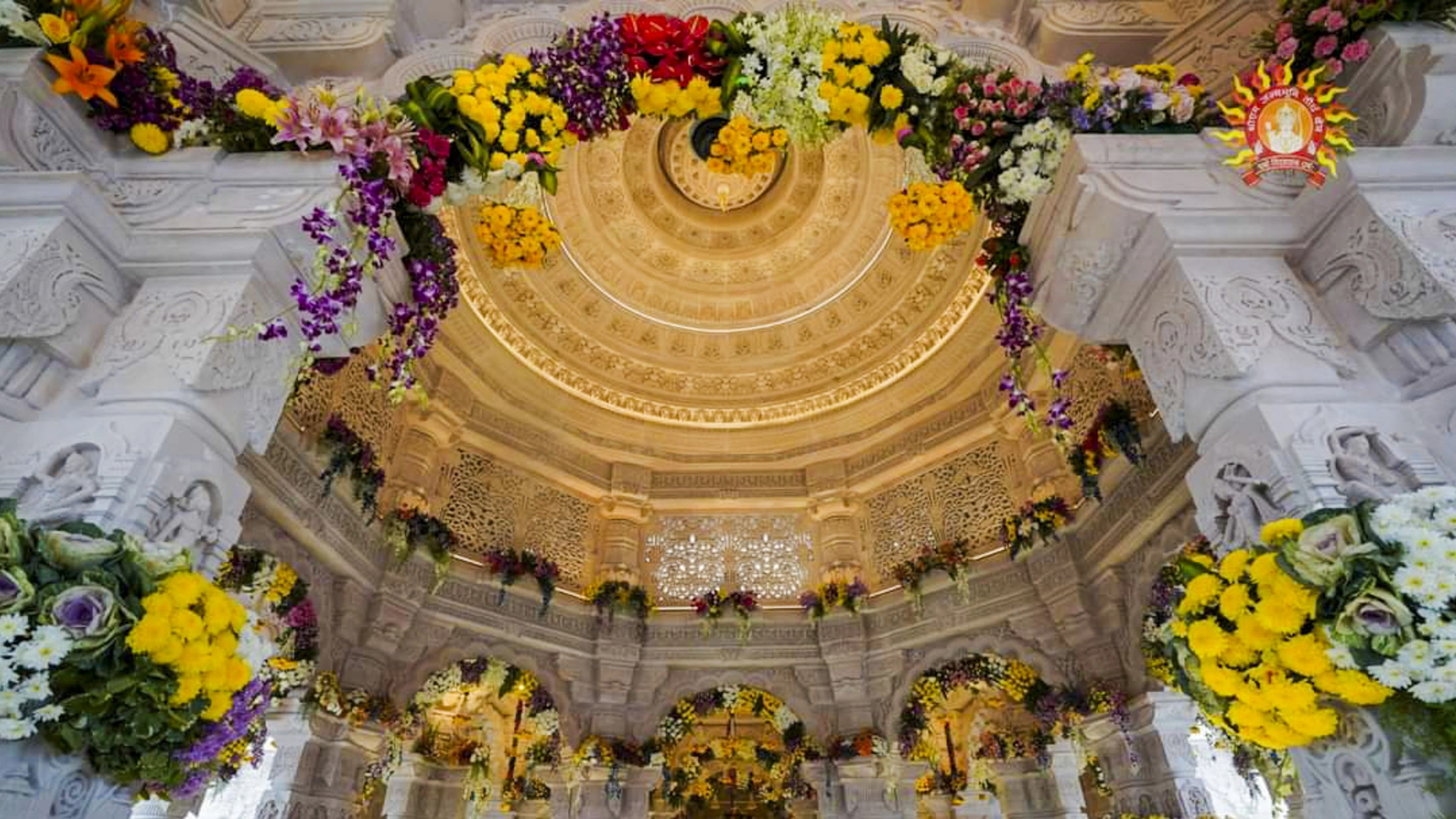
Ayodhya: Inside view of the Ram Temple on the eve of its consecration ceremony, in Ayodhya, Sunday, Jan. 21. 2024.
Credit: PTI Photo
Thiruvananthapuram: As the Ram temple at Ayodhya becomes a reality, a Malayali ex-bureaucrat who played a crucial role in 1949 is being widely remembered.
Alappuzha native K K Nair, who was an Indian Civil Service officer, was serving as Faizabad district collector in 1949 December when Ram Lalla idols were placed at the Babri Masjid. Even as the then Prime Minister Jawharlal Nehru gave instructions to remove the idols, Nair did not oblige citing the chances of communal tension. Subsequently the litigations over the temple started, recollects Nair's brother's son Padmanabha Pillai.
A trust in memorial of Nair, who passed away in 1977, is functioning at Alappuzha. The trust president Sunil Pillai has got an invitation to the consecration of the temple on Monday.
Sunil, who reached Ayodhya on Sunday, told DH over phone that the invitation as well as the good response he was receiving from the organisers emphasise the significance of Nair in making the Ram temple a reality. Hence, a befitting memorial for Nair may also come up.
Nair did his studies at Alappuzha and Thiruvananthapuram and did higher studies in London.
Later he joined the Indian civil service during the British regime. After civil service career, Nair joined the then Bharatiya Jan Sangh and was elected as MP from Uttar Pradesh. His wife Shakunthala was also a Jan Sangh MP.
While Nair was being widely hailed by those supporting the Ram mandir and describing him as the unsung hero of the Ram Mandir movement, he also faced allegations of vested political interests.